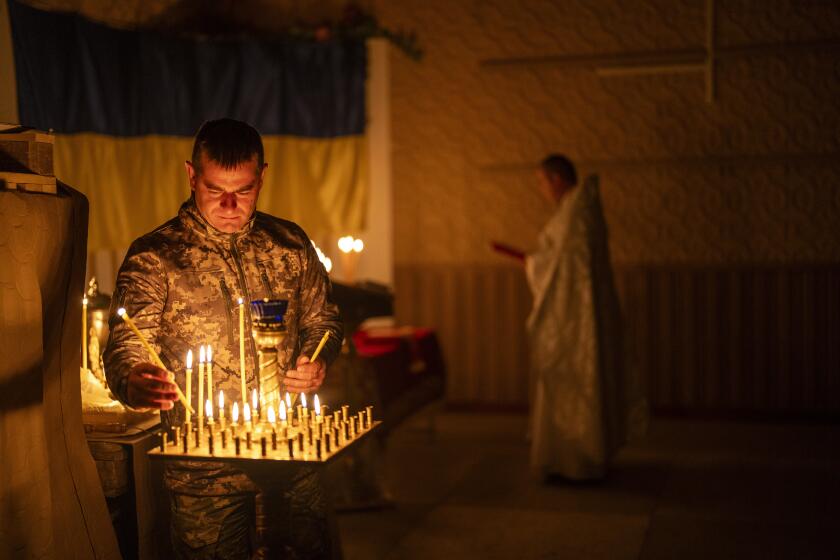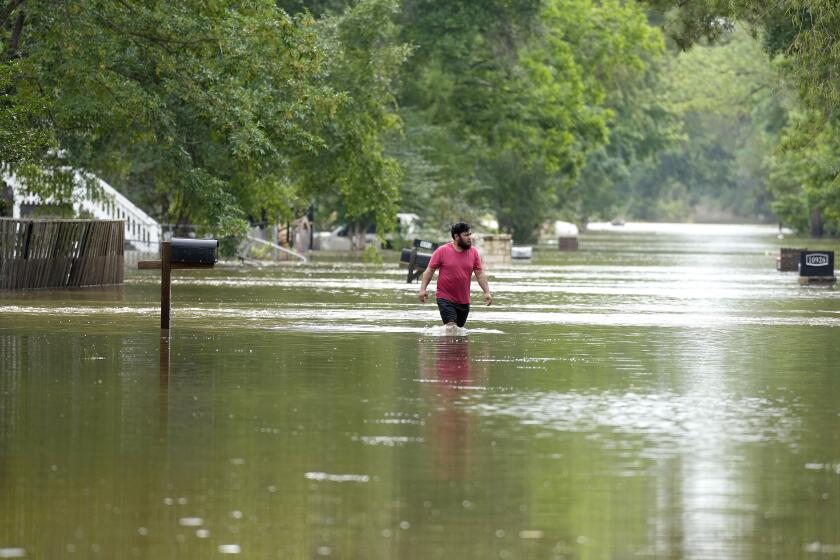Bosnia’s Vacuum: Who Will Fill It? : Dole’s proposal illustrates problem for Clinton
Senate Minority Leader Bob Dole (R-Kan.) has introduced a bill to lift the U.S. arms embargo on Bosnia and authorize $200 million in military aid. He claims that because the U.N. Security Council embargo was imposed on the former Yugoslavia, it need not apply to Bosnia.
Eight of Dole’s nine co-sponsors are Republicans; and, in a cynical view, their legislation, with little chance of passage, might be seen as an attempt to embarrass President Clinton, who first favored lifting the embargo then changed his mind. Taking the proposal at face value, what it entails is more than meets the eye, for at this point arms cannot even be delivered to the Bosnians without armed intervention on the ground. What Dole has proposed is war.
The Dole move comes on the heels of a NATO fiasco last Wednesday. Britain, France, Spain, the United States and Russia had agreed to guarantee the safety of Sarajevo and six other besieged Bosnian towns. But at this meeting, which was to have begun implementation of the plan, massive and angry disagreement broke out not just over the specific military measures but also over who, if anyone, would take them. Afterward, nothing was certain but indefinite further delay.
Taken at full strength, a safe-areas intervention by a coalition would be preferable to Dole’s de facto unilateral U.S. intervention. If the coalition can secure the besieged towns and, ideally, their adjacent villages, if it can secure the supply routes to them, including water and power, and if, via aggressive enforcement of the embargo on Serbia, those supply routes can be made the only effective supply routes into the country, then over time the besieged and the besiegers may exchange places.
Wishing to preserve its options, the Clinton Administration has stressed that its safe-areas intervention would be undertaken without prejudice toward possible later interventions. Meanwhile, Bosnia itself has surprised most observers by rejecting what has seemed that country’s last chance. Muhamed Sacirbey, Bosnia’s ambassador to the United Nations, provided an explanation of sorts when he said that Bosnia has despaired of the West: The safe-areas proposal, he predicted, would never be implemented anyway.
In the light of the NATO meeting, Sacirbey can claim the bitter right to say, “I told you so.” Indeed, if NATO fails to implement the safe-areas proposal, an existing leadership vacuum will worsen. In that case, Sacirbey has hinted, Islamic and Third World nations may slowly fill that vacuum, and Europe may face a long-running guerrilla war pitting Serb and Croat Christians against Bosnian and Albanian Muslims armed from abroad. Seen in its best possible light, Dole’s proposal prefers that the United States move into the vacuum. Against all odds, Bosnia may be precipitating a major international realignment.
More to Read
Start your day right
Sign up for Essential California for news, features and recommendations from the L.A. Times and beyond in your inbox six days a week.
You may occasionally receive promotional content from the Los Angeles Times.






